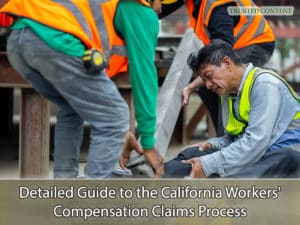The Difference Between Workers’ Comp and Third Party Claims in California
In the aftermath of a workplace injury, understanding the legal pathways available is paramount for employees in California. This comprehensive guide aims to elucidate the distinctions and intricacies of workers’ compensation claims versus third-party claims. By delving into each option, we provide clarity on the processes involved, helping injured workers make informed decisions about their legal rights and potential compensation avenues.
Understanding Workers’ Compensation in California
Workers’ compensation in California serves as a no-fault system designed to provide financial and medical support to employees who suffer job-related injuries or illnesses. This system ensures that injured workers receive timely benefits, including medical care, disability benefits for lost wages, and rehabilitation services. Importantly, workers’ compensation operates on a no-fault basis, meaning employees are entitled to benefits regardless of who was at fault for the injury. However, accepting workers’ compensation benefits typically precludes the employee from suing their employer directly for the injury.

Detailed Guide to the California Workers’ Compensation Claims Process
Detailed Guide to the California Workers’ Compensation Claims Process
Initiating a workers’ compensation claim in California requires several critical steps. First, the injured worker must report the injury to their employer within 30 days to ensure eligibility for benefits. Following notification, the employee should seek medical evaluation and treatment, with the employer providing a claim form (DWC-1) to officially start the claims process. Documentation is crucial throughout this process, as it supports the claim for benefits. Navigating through the claims process can be complex, involving various forms, deadlines, and potential disputes, highlighting the importance of understanding each step to secure the rightful benefits.
Third-Party Claims: An In-Depth Look
Third-party claims come into play when an entity other than the employer bears responsibility for the employee’s injury. This legal avenue allows injured workers to seek compensation beyond what is available through workers’ compensation, including damages for pain and suffering, loss of future earning capacity, and emotional distress. To succeed in a third-party claim, the injured worker must prove that the third party’s negligence or wrongful action caused their injury. These claims can be filed in addition to receiving workers’ compensation benefits, potentially providing a more comprehensive compensation package for the injured worker.

Comparing Workers’ Compensation and Third-Party Claims
Comparing Workers’ Compensation and Third-Party Claims
The fundamental difference between workers’ compensation and third-party claims lies in the fault requirement and the scope of recoverable damages. Workers’ compensation does not require proof of fault and offers a streamlined process for receiving benefits. In contrast, third-party claims require establishing the third party’s negligence but offer the possibility of recovering a broader range of damages. Choosing between these options depends on the circumstances of the injury and the parties involved, making it crucial for injured workers to understand the potential outcomes and limitations of each path.
Seeking Legal Assistance: The Role of an Injury Lawyer
The complexities of workers’ compensation and third-party claims in California necessitate professional legal guidance. An experienced injury lawyer can offer crucial support, from accurately filing claims to negotiating settlements and litigating disputes. Legal representation is invaluable in navigating the legal system, advocating for the injured worker’s rights, and maximizing the compensation received. With their expertise, injury lawyers play a pivotal role in ensuring that injured workers are fully informed of their options and receive the full benefits and compensation to which they are entitled.

The Difference Between Workers’ Comp and Third Party Claims in California
The Difference Between Workers’ Comp and Third Party Claims in California
For injured workers in California, understanding the nuances between workers’ compensation and third-party claims is essential for navigating the aftermath of a workplace injury. Each option offers distinct advantages and limitations, making informed decision-making critical. If you or a loved one has suffered a workplace injury, seeking legal assistance can make a significant difference in the outcome of your case. Contact Napolin Accident Injury Lawyer at (866)-NAPOLIN for a free consultation. Our extensive experience in handling both workers’ compensation and third-party claims ensures that you receive comprehensive legal support tailored to your unique situation.
- Medical Liens in California Personal Injury Claims Explained - April 27, 2024
- Essential Tips for Bicycle Injury Prevention in California - April 27, 2024
- Understanding Who is Exempt from Workers’ Compensation in California - April 27, 2024
